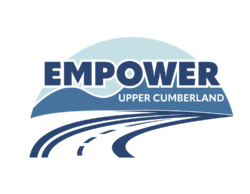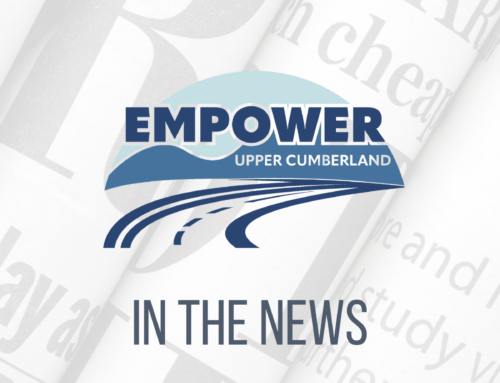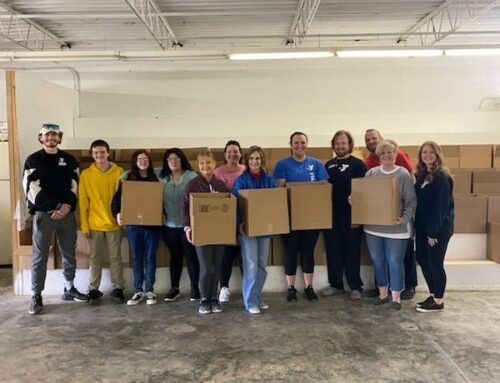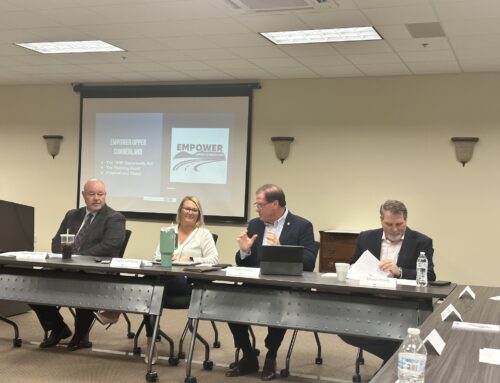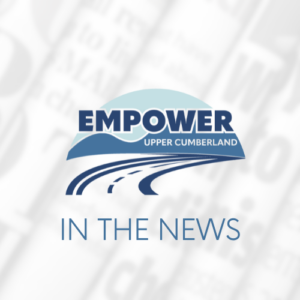
The following article is shared courtesy of Circles USA and originally appeared here.
Circles USA’s latest partnership has yielded a big win for the Upper Cumberland region in Tennessee. CUSA consulted with the Upper Cumberland Human Resource Agency (UCHRA) to apply for Tennessee Opportunity Act planning grant, using the Circles model and poverty alleviation innovations at the heart of their proposal. Based near Cookeville, Tennessee, the Upper Cumberland region is a rural area where generational poverty remains at crisis levels with approximately 16,0000 children being raised in poverty.
In December 2021, UCHRA with the help of CUSA was awarded a $445,000 this planning grant funded by TANF (Temporary Assistance for Needy Families) and the Empower Upper Cumberland coalition to end poverty began.
This planning grant team brings together diverse local groups including: Cookeville Regional Foundation, Highlands Economic Partnership, Tennessee Tech University, Upper Cumberland Development District, Upper Cumberland Local Workforce Development Board, and area Tennessee Colleges of Applied Technology, along with local employers and people with the lived experience of poverty.
Empower Upper Cumberland is envisioning a region where everyone has a job they love, a safe and affordable home, healthy food, proper transportation and childcare, strong relationships, and the resources and opportunities to thrive. Now, they have funding to lay the groundwork that will bring these dreams to fruition.
These TANF planning funds, the highest amount awarded to 17 projects across Tennessee, will fuel collaborations with state leadership, the Families First Community Advisory Board, the Tennessee Department of Human Services, research partners and professionals, and community organizations. The funding will further allow the Upper Cumberland coalition to go after a three-year, $25 million implementation grant to address the challenges that vulnerable Tennesseans face.
In a recent press release, a UCHRA spokesperson described how they “will serve as the backbone entity” for grant administration, working with workforce development, employers, nonprofit organizations including CUSA, the interfaith community, and community members to establish best practices and analyze system gaps and barriers:
The TANF Opportunity Act grant allocates approximately $180 million in TANF funds for innovative pilot programs aimed at transforming the lives of Tennesseans living in poverty.
Upper Cumberland’s collaborative team will have approximately three months to plan a poverty alleviation system that will move away from the traditional poverty management model toward a poverty alleviation approach; seeking to lift 500 children out of poverty rather than treating the symptoms of poverty in the current poverty management system.
At the end of the three-month planning period, the team will have the opportunity to pitch the proposal to the selection committee that the Upper Cumberland’s collaborative effort is ready for the challenge to bring approximately 500 children out of poverty during the three-year pilot grant period.
The collaboration is designing a new poverty alleviation ecosystem that is accountable to reducing childhood poverty and increasing work participation rates by coordinating the services and support people need to move through all 5 stages to self-sufficiency (crisis intervention, stabilization, readiness, placement, advancement). This pilot is also cataloging the system gaps and service barriers that keep people trapped in the system so as to streamline the process with a proper and graduated exit ramp from public assistance.
“In order to move the needle and move clients out of poverty, it will take all of us working together,” said Mark Farley, UCHRA Executive Director, at a TANF Opportunity Act collaboration kickoff meeting in January. “I’m excited for us to forge new partnerships and have the opportunity to work with folks and organizations to bring children and families out of poverty.”
The strategy is a bold response to UCHRA and CUSA’s recent joint interviews with employers, which showed that certain factors are critical to building successful work pathways. These factors include:
- A clear line of sight to a sustainable, family-supporting job and/or career.
- Raising employer “Poverty IQ” to shift their approach to recruiting, retaining, and advancing employees who are working to move themselves out of poverty.
- Human service, workforce development, and education programs that coordinate person-centered supports to provide job candidates with the soft and hard skills to qualify them for their chosen work pathway.
- Removing major impediments to transitioning from public assistance to work—impediments like lack of affordable childcare, housing, and transportation; and the cliff effect (i.e., the gap created when sharp decreases in public assistance occur before new earned income can replace those subsidies).
- Social capital (bonding with peers, bridging with mentors, and linking to services) that empower families to secure, retain, and advance in job pathways and feel a deep sense of belonging in the community.
“This win in Tennessee is a win for our entire Circles USA community of practice,” said Kamatara Johnson, CUSA Chief Learning Officer. “This collaboration is already producing innovative tools and processes that will benefit those in Tennessee and our 80 chapters across the country as we create new ways of moving families and communities from surviving to thriving.”
Circles USA has two decades of experience providing communities with a model that fosters the relationships we need to achieve economic stability. Empower Upper Cumberland is one of seven community groups across the U.S. who are currently collaborating with Scott Miller and CUSA to pilot this new Poverty Alleviation Systems approach. Read more about those collaborations here.
